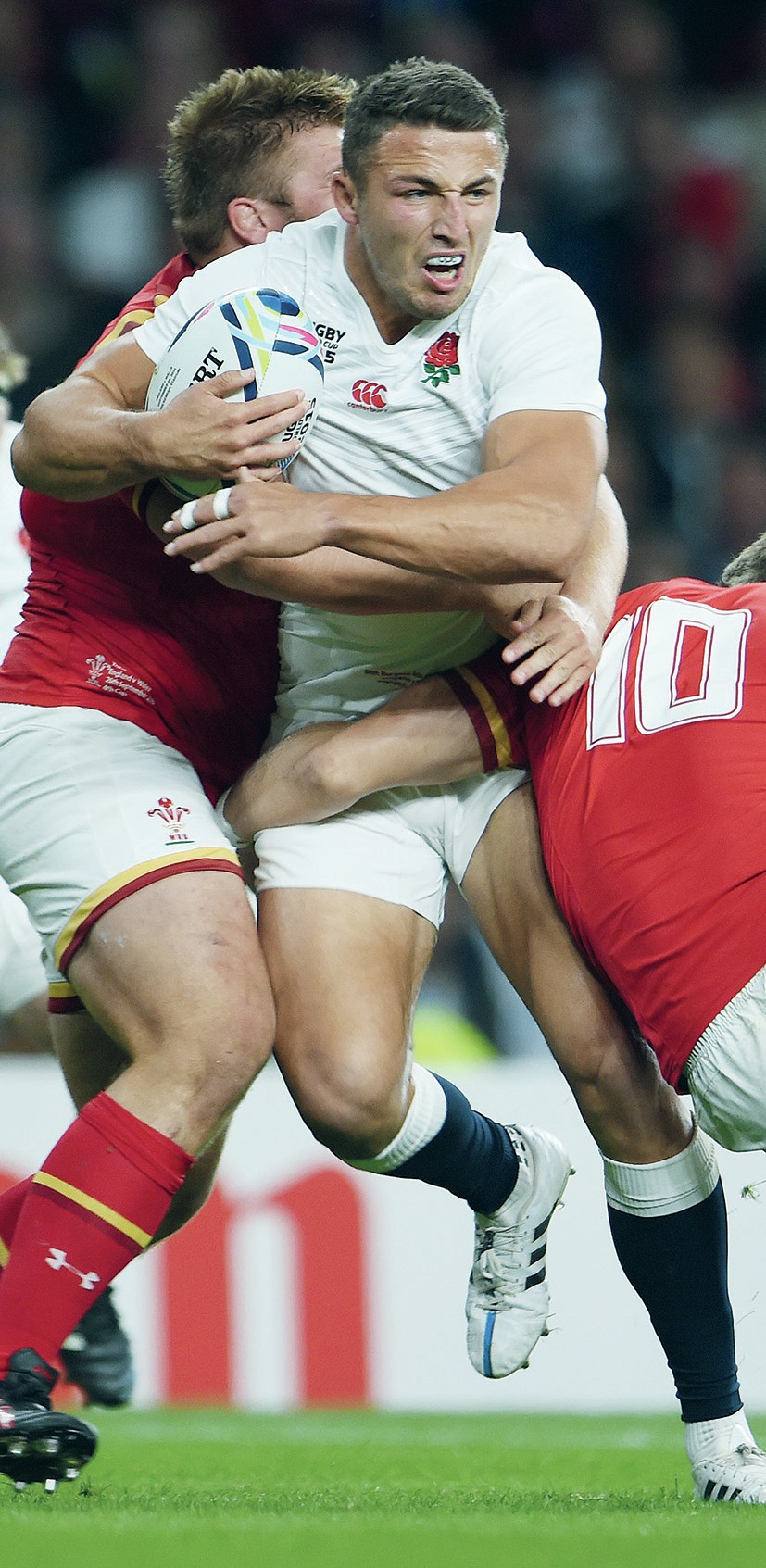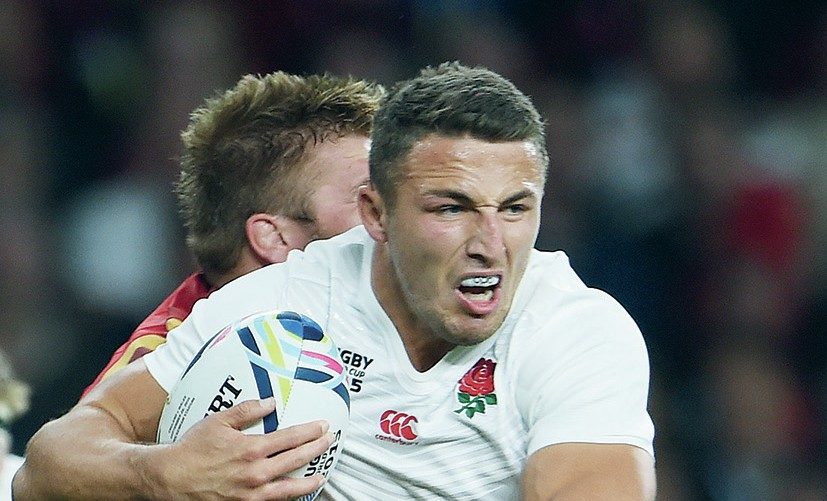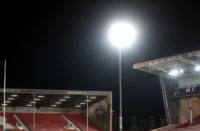
Three decades and a thousand miles down the road, die-hard All Blacks supporters still unfurl their “Bring Back Buck” flags in protest at the unfathomable sacking of Wayne Shelford as captain in the months before New Zealand's world title defence in 1991. For some strange reason, Twickenham has yet to see its first “Bring Back Burgess” banner.
The last we saw of “Slammin' Sam” was in late 2015, when he ended a brief flirtation with 15-man rugby by walking out of Bath and heading back to 13-man life in Sydney, which was just about as far away as he could get. His cross-code adventure had not been one of professional sport's most riproaring success stories – for most of his year in the Union code, he had looked about as comfortable as a polar bear on a sand dune – and few collapsed with shock when he cut his losses.
Yet that peculiar episode refuses to breathe its last. Just a few days ago, Burgess fired another shot or two (two more than he managed in an England shirt, you might think) in the direction of the Union game and the people within it. It seems he is not quite ready to let it go.
“They paid me a lot of money to do not a lot,” he is quoted as saying in a podcast interview. No arguments there. If the remark was meant as a criticism of his handling by the English rugby establishment rather than a personal mea culpa, it works either way.
As for the remaining content, particularly concerning the Twickenham defeat by Wales that effectively ended England's interest in their own World Cup at an embarrassingly early stage, his words cannot be misconstrued. He takes aim at the press and sundry others, all of whom had “an agenda”.
He also has a slap at Jamie Roberts, his direct opponent on World Cup night; he questions the motives of “old players” who “didn't want to see someone else succeed”; he wonders whether the levels of “patriotism” were as high as they might have been.
“At the end of the day,” he says, “my face didn't fit.” Poor petal.
There are a few points to be made.
For one thing, there were plenty of big-hitting media types who treated Burgess like rugby royalty from the very start and were wholly supportive of the decision to fast-track him into the World Cup squad, even though he had done less to earn an England cap than any player in living memory.
And while Roberts was less than complimentary about Burgess in a recently published autobiography, it is fair to say that the multi-tour Lions centre was not alone in rejoicing when the newcomer materialised in the England midfield for that hugely significant Twickenham game, despite a chronic lack of hours – or even minutes – in the position.
Warren Gatland, coach of Wales at the time, cracked open a cold one when England paired Burgess with Brad Barritt. “While both had their qualities in terms of ball-carrying potency and physicality, they didn't bring much mystery to the table,” he wrote in his own book. “I can't say I was unhappy about the selection. It gave me a massive clue as to how England intended to play. Forewarned is forearmed.”
Cards on the table, then. Burgess had potential as a blindside flanker, a position that does not exist in his preferred form of rugby, but considering the expertise of those who had truly mastered the role – Richard Hill and Alan Whetton, Jerome Kaino and Michael Jones (who was the master of pretty much everything) – it went without saying that he would require a full World Cup cycle's worth of education.
As an inside centre? Puhleeese. If Stuart Lancaster and his fellow England coaches really thought the key to World Cup victory was an unusually big No.12 with average pace, no kicking game, a limited passing range and zero instinct for the creative side of midfield play, they should have asked Dr Frankenstein to invent one. It would have been cheaper.
Lancaster was sincere in his opinion that Burgess could solve England's most pressing selection issue, created by the perceived vulnerabilities of Kyle Eastmond, Billy Twelvetrees, Luther Burrell and a handful of others. But the faith he showed was blind, and as we know, there are none so blind as those who will not see.

“Sam makes 30-odd carries every time he plays Test-match League,” he once explained. “Yes,” came the response. “And he doesn't have to produce the ball from any of them. It's a different sport.”
All we need to understand about the nonsense of the Burgess Affair is that he came into the 15-man game in England as its highest paid player, with zero experience and, on his own admission, no knowledge of its laws.
Up, you could not have made it.
A small minority of rugby chroniclers never believed for a second that he should have featured at the 2015 World Cup and repeatedly said so in print. This writer would have loved to have agreed with Lancaster, but then we would both have been wrong.
For more exclusive stories, features, and all the detailed rugby news you need, subscribe to The Rugby Paper website, digital edition, or newspaper from as little as 14p a day.




























The ‘Burgess Affair’! This makes me laugh. Lets point at the player rather than the England management who handled a great player very poorly.
Eng v Wales – When Burgess was on the field, playing opposite Roberts, you didn’t know Roberts was playing. Then the England management took Burgess off and, suddenly Roberts is creating try scoring chances. Roberts was ‘bricking it’ while Burgess was on.
I quote you “If Stuart Lancaster and his fellow England coaches really thought the key to World Cup victory was an unusually big No.12 with average pace, no kicking game, a limited passing range and zero instinct for the creative side of midfield play, they should have asked Dr Frankenstein to invent one. It would have been cheaper.” – Just a minute. Doesn’t Eddie Jones buy into this theory? Hence Tuilagi’s appearance every time he is half fit?
I quote you again “All we need to understand about the nonsense of the Burgess Affair is that he came into the 15-man game in England as its highest paid player, with zero experience and, on his own admission, no knowledge of its laws.” The RFU paid the player but the player is to blame? Come on! He was a young man who was offered a big pay day. What would you or, anyone else in that position, have done?
With regard to any fault for your ‘Burgess Affair’, you should be pointing your finger straight at the RFU and the England Management, not Sam Burgess.